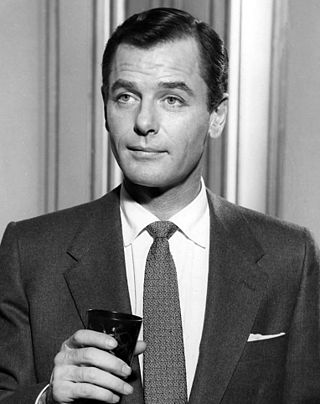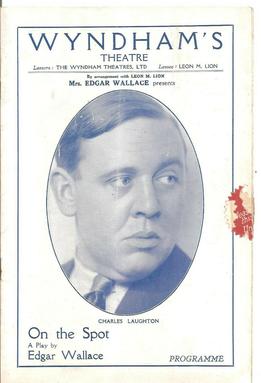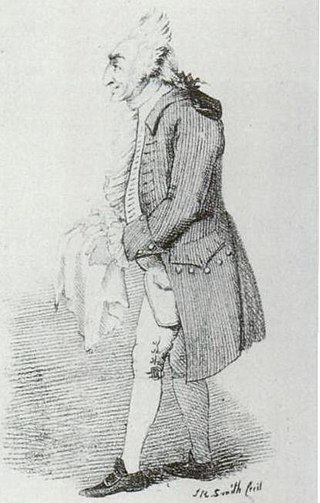Related Research Articles

Gig Young was an American stage, film, and television actor. He was nominated for the Academy Award for Best Supporting Actor for his performances in Come Fill the Cup (1952) and Teacher's Pet (1959), finally winning that award for They Shoot Horses, Don't They? (1969).

Andre Keith Braugher is an American actor. He is best known for his roles as Detective Frank Pembleton in the police drama series Homicide: Life on the Street (1993–1999), used car salesman Owen Thoreau Jr. in the comedy-drama series Men of a Certain Age (2009–2011), and Captain Raymond Holt in the police comedy series Brooklyn Nine-Nine (2013–2021).

Frank A. Langella Jr. is an American actor known for his commanding roles on stage and screen. Langella eschewed the career of a traditional film star by always making the stage the focal point of his career, appearing on Broadway. He's received numerous accolades including four Tony Awards, a Drama Desk Award and a Screen Actors Guild Award as well as nominations for an Academy Award, a BAFTA Award, a Emmy Award, and two Golden Globe Awards,

William Dunlap was a pioneer of American theater. He was a producer, playwright, and actor, as well as a historian. He managed two of New York City's earliest and most prominent theaters, the John Street Theatre and the Park Theatre. He was also an artist, despite losing an eye in childhood.
André; a Tragedy in Five Acts is a play by William Dunlap, first produced at the Park Theatre in New York City on March 30, 1798, by the Old American Company, published in that same year together with a collection of historic documents relating to the case of the title character, Major John André, the British officer who was hanged as a spy on October 2, 1780, for his role in the treason of Benedict Arnold. The play does not go into the historic details, but rather presents a fictionalized account of the American debate over whether to spare or hang him. Only three characters in the play are historic: André himself, George Washington, and Honora Sneyd, who had been briefly engaged to André ten years earlier under the auspices of Anna Seward, who had done much to romanticize the affair in her Monody on Major André of 1781.

Hal Willner was an American music producer working in recording, films, television, and live events. He was best known for assembling tribute albums and events featuring a wide variety of artists and musical styles. He died during the COVID-19 pandemic due to complications brought on by the virus.

The equestrian theatre company of Pépin and Breschard, American Victor Pépin and Frenchman Jean Baptiste Casmiere Breschard, arrived in the United States of America from Madrid, Spain, in November 1807. They toured that new country until 1815. From their arrival until the present day, what is now known as the traditional circus has had a presence in North America.

Nineteenth-century theatre describes a wide range of movements in the theatrical culture of Europe and the United States in the 19th century. In the West, they include Romanticism, melodrama, the well-made plays of Scribe and Sardou, the farces of Feydeau, the problem plays of Naturalism and Realism, Wagner's operatic Gesamtkunstwerk, Gilbert and Sullivan's plays and operas, Wilde's drawing-room comedies, Symbolism, and proto-Expressionism in the late works of August Strindberg and Henrik Ibsen.
Documentary theatre is theatre that uses pre-existing documentary material as source material for stories about real events and people, frequently without altering the text in performance. The genre typically includes or is referred to as verbatim theatre, investigative theatre, theatre of fact, theatre of witness, autobiographical theatre, and ethnodrama.

A quadruple reed is a type of reed by means of which the sound is originated in various wind instruments. The term "quadruple reed" comes from the fact that there are four pieces of dried palm leaf vibrating against each other, in pairs. A quadruple reed, such as the Thai pinai, operates in a similar way as the double reed and produces a timbre similar to the oboe. The Arabic pii chawaa is, "sometimes described as having a double reed though this is actually folded yet again, creating four layers of reed and thus requiring considerable lung power to play".

Thomas Wignell was an English-born actor and theatre manager in the colonial United States.

John Street Theatre, situated at 15–21 John Street, sometimes called "The Birthplace of American Theatre", was the first permanent theatre in the Financial District of Manhattan, New York. It opened on December 7, 1767, and was operated for several decades by the American Company. It closed on January 13, 1798.

John Hodgkinson was a well-known actor in the United States in the late 18th and early 19th century. He was born in England and came to the United States in 1792. William Dunlap and Hodgkinson managed the John Street Theatre together for a few years in the 1790s.

Peter Godfrey was an English actor and film director. Founder of the experimental Gate Theatre Salon in 1925, with his first wife Molly Veness, he staged London's first expressionistic production in the following year. He went into partnership with Velona Pilcher in 1927 and together they opened the Gate Theatre Studio in Villiers Street, Charing Cross. Eventually moving to Hollywood, he established a career as a film actor and director.
Reed Birney is an American actor. Birney is known for his performances on stage and screen often acting on and off Broadway. Birney gained acclaim in 2016 for his role in The Humans winning the Tony Award for Best Featured Actor in a Play. He was also nominated previously in the same category for his performance in Casa Valentina in 2014.
John Street is a street in Lower Manhattan. It runs north to south through the Financial District. It is one of the oldest streets in the city. Long associated with maritime activity, the street ran along Burling Slip. The slip was filled in around 1840, and the street widened. Besides a wharf, warehouse, and chandlery, the city's first permanent theatre, and the first Methodist congregation in North America were located on John Street. It was also the site of a well-known pre-Revolutionary clash between the Sons of Liberty and British soldiers, pre-dating the Boston Massacre by six weeks.

On the Spot is a 1930 Chicago-set play by the British writer Edgar Wallace. Wallace was inspired by a visit to the United States and, in particular, the Saint Valentine's Day Massacre. Known as a prolific author, he reportedly dictated the manuscript for the play in just four days. It was his greatest theatrical success.

William Twaits was a British singer, dancer and actor-manager whose career was mostly in the United States in the early 19th-century.

Frances Brett Hodgkinson (1771–1803) was an English-born American theater actress. She played major roles in high comedy and tragedy plays and was also a noted performer of opera. She was the second wife of John Hodgkinson, a famous American stage actor.

Carl Cofield is an American theatre director and actor.
References
- ↑ Wegelin, Oscar. "Early American Plays 1714-1830". www.gutenberg.org. Retrieved 2019-12-13.
- ↑ Reed, Peter P. (2009). "Treason and Popular Patriotism in The Glory of Columbia". In Reed, Peter P. (ed.). Rogue Performances. Rogue Performances: Staging the Underclasses in Early American Theatre Culture. Palgrave Studies in Theatre and Performance History. Palgrave Macmillan US. pp. 79–100. doi:10.1057/9780230622715_4. ISBN 978-0-230-62271-5. S2CID 163314325.